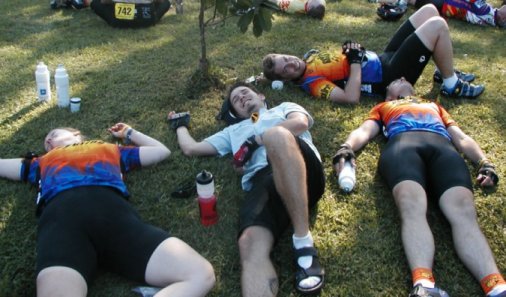Indolence
/The question of whether indolence in its literal sense can be a virtue in martial arts training arose last month on Formosa Neijia and on Dojo Rat, but I'm too...you know...to find and link to the exact posts.

On Formosa Neijia the subject was raised in a rather contentions way, through the suggestion that Yang stylists might not work as hard as Chen stylists. Naturally, the comments concluded that it is individual practitioners, not styles, which are variously lazy or hard working.
However, some people did conclude that to avoid pain in ones practice can have positive results. Does this really work?
Diligently practicing to avoid pain won't work. We actually need to practice what is painful, and we need to practice each and every painful thing until we understand exactly how and why it is painful. I'm not saying you need to injure your wrist on the left side and then do it again on the right side. That would be dumb.
You can certainly extrapolate that if a practice causes injury to one part of the body it will do the same to another. The more quickly you learn what truly hurts, the more quickly you will progress. Learning, in this case means learning not to do what hurts.

But....
I've been teaching kids some short Shaolin routines called Stone Monkey. One of the characteristics of the Stone Monkey is that you bang your elbows and knees on the ground and even grind your fist into the ground with your entire body weight on it. If you do it right, it doesn't hurt. But it always hurts the first few times you do it and if you have a case of blood stagnation from too much time on the cough watching Kungfu movies, it will continue to hurt until you improve the quality of your blood and your circulation. That could take a while.
Good martial arts training works backwards.
 About 80% of the people I teach habitually slightly dislocate at least one of their hips. While they are young it hardly matters, young hips are juicy and forgiving. They just develop protective muscles which limit range of motion. But if one of these students takes a lot of weight in a slightly dislocated hip they can have pain. As people age the slight dislocation of the hips becomes a bigger and bigger problem.
About 80% of the people I teach habitually slightly dislocate at least one of their hips. While they are young it hardly matters, young hips are juicy and forgiving. They just develop protective muscles which limit range of motion. But if one of these students takes a lot of weight in a slightly dislocated hip they can have pain. As people age the slight dislocation of the hips becomes a bigger and bigger problem.The key to training is to notice the dislocation, notice that it causes a tiny bit of pain. The pain is usually so small it quickly turns to numbness if you ignore it, but don't ignore it! Understand exactly how and why it occurs. Then stop doing it. And when I mean stop, I mean STOP!
You have to take these sorts of mis-alignment-pain seriously enough to re-teach yourself how to walk, how to run, how to climb stairs, how to get in and out of a car, just about everything.
At one point (years ago) in my standing practice, about 40 minutes into standing still, my foot would start to hurt. I'm talking about, "I want to scream," type of pain. The first 1000 times I felt this pain, I wiggled, and jiggled until it stopped. Finally one day I stuck with it. When I was done standing I didn't shake out, I moved very slowly and carefully through my taiji and bagua and even while doing push hands. It hurt really badly the whole time. At some point I fell into trance and lost the pain.

But I had held onto it long enough to know that it was a problem I was re-creating with the inefficiency of my movement on a daily basis. So for the next week or so I stood until it hurt and I stayed with the pain until I could identify its causes in my daily behavior.
You won't really understand what is hurting and why it is hurting unless you push your body through the difficult parts of training. If you want to transform yourself through martial arts, you've got to hold low stances, do extreme power stretching and high kicks, get bumps, bruises and twists, and slowly and methodically unravel the bad habits and old injuries--pain is part of the whole package.
That being said, don't eat an 800 pound bag of potato chips. If something is hurting and you understand how and why, than stop already. There is nothing wrong with potato chips, as long as you don't eat more than five.
I might add in passing that pains of the heart and mind work the same way; the experience of intimacy is linked to betrayal, and abandoning rigid thinking is linked to cognitive dissonance.
___________________________________________
Note: I got the picture of people doing taijiquan in wheelchairs from United Spinal. Apparently taiji is of benefit for people with MS.
